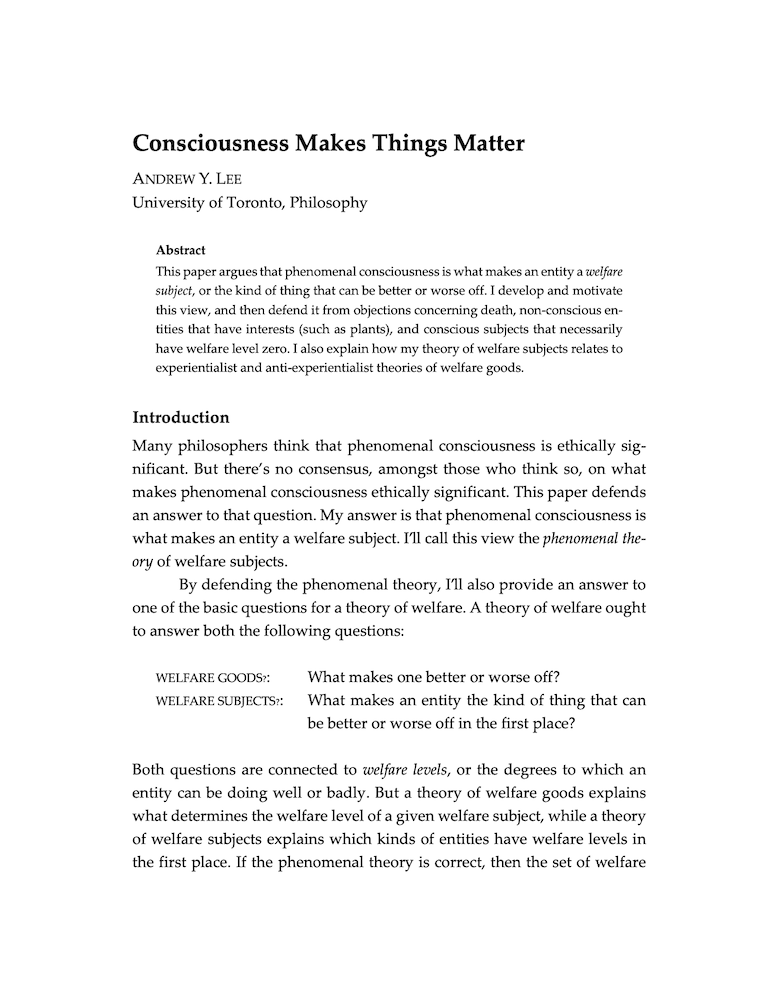Consciousness makes things matter
Andrew Y. Lee (University of Toronto)
GPI Working Paper No. 25-2024, forthcoming at Philosophers' Imprint
This paper argues that phenomenal consciousness is what makes an entity a welfare subject, or the kind of thing that can be better or worse off. I develop and motivate this view, and then defend it from objections concerning death, non-conscious entities that have interests (such as plants), and conscious subjects that necessarily have welfare level zero. I also explain how my theory of welfare subjects relates to experientialist and anti-experientialist theories of welfare goods.
Other working papers
Funding public projects: A case for the Nash product rule – Florian Brandl (Stanford University), Felix Brandt (Technische Universität München), Dominik Peters (University of Oxford), Christian Stricker (Technische Universität München) and Warut Suksompong (National University of Singapore)
We study a mechanism design problem where a community of agents wishes to fund public projects via voluntary monetary contributions by the community members. This serves as a model for public expenditure without an exogenously available budget, such as participatory budgeting or voluntary tax programs, as well as donor coordination when interpreting charities as public projects and donations as contributions. Our aim is to identify a mutually beneficial distribution of the individual contributions. …
The asymmetry, uncertainty, and the long term – Teruji Thomas (Global Priorities Institute, Oxford University)
The Asymmetry is the view in population ethics that, while we ought to avoid creating additional bad lives, there is no requirement to create additional good ones. The question is how to embed this view in a complete normative theory, and in particular one that treats uncertainty in a plausible way. After reviewing…
Moral uncertainty and public justification – Jacob Barrett (Global Priorities Institute, University of Oxford) and Andreas T Schmidt (University of Groningen)
Moral uncertainty and disagreement pervade our lives. Yet we still need to make decisions and act, both in individual and political contexts. So, what should we do? The moral uncertainty approach provides a theory of what individuals morally ought to do when they are uncertain about morality…

